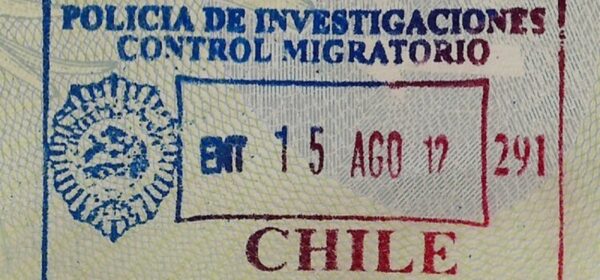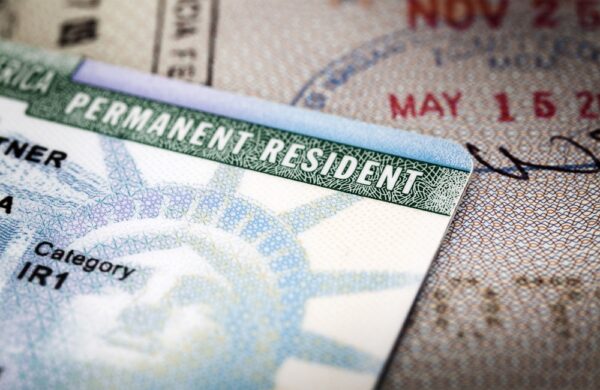The UK has long been a popular destination for professionals seeking international work opportunities. Thanks to its robust economy and welcoming atmosphere, foreign nationals and skilled professionals seeking better work opportunities and living conditions now have something to look forward to. However, as a UK work visa applicant, you need to meet the English Language requirements. This English requirement is as important as securing a work sponsorship or certificate of sponsorship. You may ask the question: Does a UK work visa require IELTS? The answer is Yes; getting a UK work visa requires that you prove your English language proficiency and UKVI life skills. This is possible by passing a Secure English Language Test (SELT). Let's see what IELTS entails and if you can be exempted.
Understanding the UK Work Visa Requirements
The UK is a popular option for immigrants and it's no surprise it has different immigration pathways. The UK offers different work visa categories based on the nature of the job and the applicant's skill level. From a skilled worker visa to a health and care worker visa, innovator founder visa, and temporary work visa, there's something for every foreign worker. However, the English language is the official language in the UK, and many foreign nationals with no English background might find it difficult to get by.

English language proficiency is an important requirement for many work visa categories, and this is to test foreign workers' English language abilities. Likewise, it's to ensure that applicants can easily adapt to the UK environment without having communication issues. Many work visa types, like the skilled worker visa, require that you pass the IELTS English proficiency test. You also have to show that you have the English language skills to thrive in the UK.
What is IELTS?
IELTS is an acronym for the words International English Language Testing System, which is the most widely recognised English proficiency assessment test and important eligibility criteria to live, study, and work in the UK. The goal of IELTS is to ensure that non-native speakers can communicate effectively in English across four different areas. This includes listening, speaking, reading, and writing. Oftentimes, IELTS is commonly used for academics, work, and other overseas visa application migration. The impressive thing is that not just the UK accepts this testing system, but also many countries and organizations as well.
The UK Visas and immigration IELTS is an essential visa application process for those who want to work, study, or live in the UK. There are different types of IELTS tests, each catering to different needs. The first one is the academic IELTS UKVI, which is for international students pursuing a student visa in the UK. The second is the IELTS UKVI (General Training), which is for foreign nationals who want to work or organize training programs in the UK. There's the IELTS for UKVI and IELTS for UKVI life skills.
All IELTS type is generally based on four sections. Listening with a 30-minute timeframe that includes four recordings of native English speakers. Reading, which takes 60 minutes, includes passages with exercise at the end of the reading to test your comprehension of the passage. Writing, which also takes 60 minutes involves two tasks requiring that you write an essay and also give a data interpretation or letter writing. Finally, the speaking test takes about 15 minutes and is usually a physical interview with an examiner.
The IELTS Scoring System
The scoring system is band score-based, ranging between 1 and 9. 1 being non-user and 9 being expert user. Note that each section of the IELTS is scored individually, of which the overall score will be an average of all four sections. If you want to get into the UK successfully, you need to meet a specific band score. This is totally dependent on the route you're applying through. This is called the Common European Framework of Reference for Languages (CEFR) level.
If your visa application requires a C1 CEFR level, you need a band score of 7.0 to prove your English language skills. For level B2, you need a 5.5 band score. For level B1, you need a minimum score of 4.0 to show you have enough English knowledge. If you are applying to the UK via an international sportsperson visa, you need to meet the A1 CEFR level, which means having a pass in your IELTS for life skills that as listening and speaking. There is also the A2 CEFR level, which is similar to the A1 but can only be taken in the United Kingdom.
When is IELTS Required for a UK Work Visa?
When it comes to working in the UK, you have to prove your English skills for a successful visa application. It's not enough that you secure an eligible occupation; you need to meet the language eligibility requirement for international applicants. If you're applying for the UK Skilled Worker visa, you need a minimum band score of 4.0 across all 4 aspects. However, there are cases where exemptions might happen, which we will talk about later in the article.
If you're a medical professional, you're definitely applying via the healthcare worker visa. This visa type requires a B1-Level CEFR, which means you must have a minimum band score of 4.0. For foreign nationals wanting to set up an innovative business in the UK, the innovator visa is likely the way to go, and it requires a band score of 5.5 to set up an overseas business in the UK.
Approved SELT Test Providers
To avoid being scammed or any issue at all, you need to be familiar with the English test providers approved by UK immigration authorities. Ensure that the Home Office has properly vetted the test providers you're opting for and that the English language test they provide has met the required criteria. Note that you're not compelled to pick a specific one as all of them are equally regarded, and you can choose from providers you feel comfortable with. All you need to do is to make sure the test you're choosing is approved for SELT.
- IELTS SELT Consortium
- Pearson
- LANGUAGECERT
- PSI Services (UK) Ltd – Skills for English (UKVI)
Does UK Work Visa Require IELTS in Every Case?
No, the UK work visa does not require IELTS in every case. There's a case of exemption, but only under certain conditions. However, you still need to meet some English requirements. You don't have to write an IELTS or prove your knowledge of the English language if you have already passed an English Language assessment test that is relevant and is accepted by UK immigration. Likewise, if you have a degree in the English language and your degree passes the verification process based on immigration policies, you might not have to deal with the English proficiency process.
If you are a Veterinary surgeon, you can boycott the IELTS process if you have passed the Royal College of Veterinary Surgeon assessment test. Finally, foreign nationals from specific countries do not need to prove their knowledge as they're English-speaking countries. These countries include Canada, Bahamas, the US, Dominica, New Zealand, Jamaica, etc.
Tips On Taking IELTS For a Successful Application
The IELTS is as delicate as the UK immigration process itself. For skilled workers and foreign nationals with eligible occupations looking forward to an opportunity in the UK, it's important to prepare for it.
1. Prepare For The Exam
To avoid being caught unawares, preparing for your English language proficiency test is essential. You need to understand the test format, which we mentioned earlier. Get familiar with the test structures and the possible question types for each section; that way, you'll be able to answer your questions easily. You also need to practice regularly; what you practice is what becomes a part of you. Practise the listening, speaking, reading, and writing aspects until you become good at it. You can also use mock tests to practice.
Also, you must focus more on your weak areas and ask for help when needed. When preparing for your IELTS test, you must use relevant resources and an authentic IELTS official guide. You can also use Cambridge practice books and online books. Nobody is an island of knowledge, so you can use feedback from experts and English language instructors to assess your skills.
2. Go Early For The Exam
When you want to take the IELTS, you need to be as calm as possible to prevent avoidable mistakes. One of the ways to achieve that is by going to the examination early. This is to avoid the rush that comes with being late for an important exam such as the IELTS. Making a proper plan before the examination is important. Plan for unforeseen circumstances like delays in transportation or traffic, it's better to be earlier than late. Leave home early so you have enough time to settle down and mentally prepare for what is ahead of you.
3. Bring Your Means of Identification
Your identification, such as your passport, is an important aspect of the IELTS test. You should never go to the test venue without it because it's your pass to the test hall. If you're using your passport as a means of identification, ensure that it is valid. Another alternative ID you can use is your government-issued ID.
Conclusion
Answering the question, does a UK work visa require IELTS? We talked about what IELTS is, when it is required, if you can be exempted, and tips for your IELTS exam. It's important to understand that IELTS is an important UK work visa requirement that cannot be negotiated unless you're under the exemption umbrella. Also, ensure you register with the approved test provider to avoid rejection. Likewise, please take note of the tips we provide regarding taking the IELTS test. Prepare ahead, seek help from a professional, go to the exam venue early, and go with your means of identification.
















